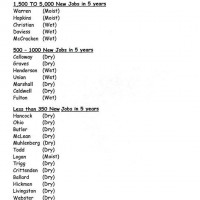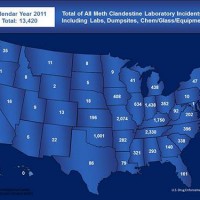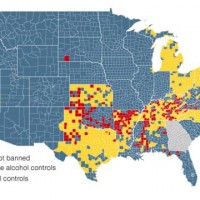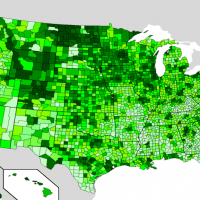
To the Editor:
In reading prior editorials and comments regarding the special election for alcohol sales set for July 28, 2015, or the related subject of alcoholic beverages, I have not seen any that informs the voting public as to the important consequences of the upcoming July 28th vote. I have therefore compiled the following in order to enlighten concerned citizens and voters. The summaries and sources referenced below contain direct links to the studies or authors, so the reader can read theses in their entirety. I hope the voters will find this information helpful and turn out to vote.
The Wall Street Journal: “Local Alcohol-Prohibition Laws May Lead to Less Liquor, But more Meth, Economists Says”– Methamphetamine may be more popular in areas of the U.S. where it’s illegal to buy liquior. A trio of economists at the University of Louisville found that Kentucky’s “dry” counties, where alcohol sales are banned, have more meth lab seizures per capita than do the state’s “wet” counties where liquor is legal. University of Louisville economists found that dry counties have two more lab seizures per 100,000 residents each year than do wet counties, suggesting that meth production is more common in areas where alcohol sales are banned. “The results of this research are consistent with the unintended consequences of local alcohol bans predicted by economic theory, the economists concluded in their paper, titled “Breaking Bad: Are Meth Labs Justified in Dry Counties?” (The article opens with quotes about meth production from the television show “Justified,” which is set in Kentucky.) http://blogs.wsj.com/economics/2015/01/04/local-alcohol-prohibition-laws-may-lead-to-less-liquor-but-more-meth-economists-say/
Breaking Bad: Are Alcohol Restrictions Giving Meth A Boost? This paper examines the influence of alcohol prohibition on the number of methamphetamine labs. The 21st amendment repealed the federal ban on alcohol sales/production, but still allowed states to impose local bans of alcohol. Local option ordinances allow municipalities or counties to choose their wet/dry status. Most previous studies have considered the effects of these bans on alcohol related events.
“The state could reduce the number of meth lab seizures by 17 to 30 percent per year if all counties were wet.” –By Jose Fernandez, Stephan Gohmann, Joshua Pinkston University of Louisville, Nov. 2014, http://dailycaller.com/2015/01/05/breaking-bad-are-alcohol-restrictions-giving-meth-a-boost/
Study: THE EFFECT OF ALCOHOL PROHIBITION ON ILLICIT-DRUG-RELATED CRIMES (pdf) –summary: “We find that having local alcohol access decreases crime associated with illicit drugs.” Authors: MICHAEL CONLIN, Syracuse University; STACY DICKERT-CONLIN, Syracuse University; And JOHN PEPPER, University of Virginia. https://www.msu.edu/~conlinmi/JLawE2005.pdf
UK Cooperative Extension Service, University of Kentucky-College of Agriculture: “Clandestine meth labs have been found throughout Kentucky, with the heaviest concentration in the Western region of the state. Law enforcement is finding these labs at an ever-increasing rate, including in the East and Central regions. According to the Drug Enforcement Administration, 16 meth labs were seized in 1999, costing the state some $98,000 in cleanup costs alone. In 2003, DEA Superfunds were bankrupted by the Western Kentucky region alone. Additional grants were necessary to allow Kentucky to continue to remove the hazardous waste and protect the safety of the community.” http://www2.ca.uky.edu/hes/fcs/heel/land/meth_agents_guide.pdf
Underage Drinking Drops to New Low in U.S.: “Underage drinking in the US has dropped to a new low. A nation-wide survey of young people was made by the Substance Abuse and Mental Health Services Administration (SAMSHA). It found that underage drinking during the previous month among 12 to 17 year olds dropped one-third (34%) between 2003 and 2013. The study also found that underage drinking hit record historic lows. It did so for all measures of consumption. This included heavy and and heavy episodic drinking. Such drinking is often called binge drinking. These findings are consistent with other national studies. The survey is conducted annually. Each time it uses a nationally representative sample of about 67,500 people. Underage drinking in the U.S. has dropped greatly in the past 35 years and continues to decline.” http://www.alcoholproblemsandsolutions.org/underage-drinking-drops-new-lows/
Last of U.S. dry towns loosening up to alcohol sales: “Mothers Against Drunk Driving spokesman Nick Ellinger says the advocacy group has no problems with such regulatory loosening as long as people being sold alcohol are above age 21 and aren’t being served to the point of intoxication. “We don’t get involved in ‘wet’ vs. ‘dry’ issues,” he says. Although numerous communities stay dry for philosophical, religious or sociological reasons, “the reasons why dry is going away are economic,” says Eric Shepard, editor of Beer Marketer’s Insights, a beer industry trade publication. “Liquor sales bring tax revenue. Tough times squeeze dry counties as well as wet counties.”…” http://www.usatoday.com/story/news/nation/2013/02/01/dry-towns-alcohol-bans-blue-laws/1884513/
Reuters: “Analysts say the “moistening” of Texas shows that the “Baptist battle against the bottle” has given way to other political priorities such as opposition to abortion and gay marriage — issues which the Republican Party has deftly used to get its supporters to the ballot box. Cold economics is also at play with even teetotaling Southern Baptists opting to back local ballot initiatives to loosen anti-alcohol laws in a bid to attract businesses, restaurants and the tax revenue they bring.”One stripe of Texas conservative is a social conservative stripe,” said Cal Jillson, a political science professor at Southern Methodist University in Dallas.”They have historically been concerned with prohibition and alcohol consumption but in recent years have been more focused on abortion, school prayer and gay marriage,” he told Reuters.The change has occurred quietly but it has been dramatic. Dry-town votes are following similar election trends in other alcohol regulations. Since 2002, 16 states have passed bills allowing for Sunday alcohol sales, according to the council. Last year, the state of Connecticut began allowing such sales. In 2011, more than 100 individual communities in Georgia approved Sunday sales. http://www.reuters.com/article/2007/04/15/us-texas-alcohol-idUSN0528903820070415
Do Dry Counties Have More DWI?: “With its larger population, California should have more alcohol-related accidents than Texas. However, there’s one very important difference between the two states: Texas has a large number of dry (prohibition) counties whereas California has none. Research has long demonstrated that the existence of dry counties increases alcohol-related automotive accidents and fatalities. For example, a recent study of about 39,000 alcohol-related traffic accidents in wet compared to dry counties in Kentucky found that a higher proportion of dry counties’ residents are involved in such crashes.” Excerpted from the article, “Alcohol-Related Traffic Crashes: A Cause.” By David J. Hanson, Ph.D. http://www.dwi-austin-tx.com/sitedir.buford_gonzalez.com/DryCounties.aspx
Mark Thornton is the O. P. Alford III Assistant Professor of Economics at Auburn University: Alcohol Prohibition Was a Failure | Cato Institute: “Although consumption of alcohol fell at the beginning of Prohibition, it subsequently increased. Alcohol became more dangerous to consume; crime increased and became “organized”; the court and prison systems were stretched to the breaking point; and corruption of public officials was rampant. No measurable gains were made in productivity or reduced absenteeism. Prohibition removed a significant source of tax revenue and greatly increased government spending. It led many drinkers to switch to opium, marijuana, patent medicines, cocaine, and other dangerous substances that they would have been unlikely to encounter in the absence of Prohibition. Those results are documented from a variety of sources, most of which, ironically, are the work of supporters of Prohibition—most economists and social scientists supported it. Their findings make the case against Prohibition that much stronger.” http://www.cato.org/publications/policy-analysis/alcohol-prohibition-was-failure
WHERE THE ‘DRY’ COUNTIES ARE
Dry counties | Total counties in state:
Tennessee: 91 | 95
Arkansas: 42 | 75
Oklahoma: 37 | 77
Mississippi: 34 | 82
Alabama: 26 | 67
Kentucky: 44 | 120
Kansas: 25 | 105
Texas: 29 | 254
Marshall County Tribune-Courier – Chamber releases results of alcohol survey says involvement in issue is done “Of the 243 Chamber members surveyed, 54 percent responded. The results of the survey indicated 64 percent of the respondents are in favor of the Chamber taking a stand for alcohol sales, 19 percent of the respondents were for the Chamber taking a stand against alcohol sales and 17 percent of respondents expressed a desire for the Chamber not to be involved in the question of ending prohibition in Marshall County.
Joe Dooley
Gilbertsville, KY




